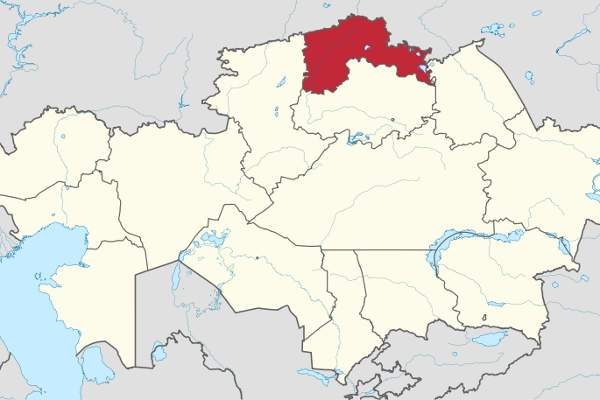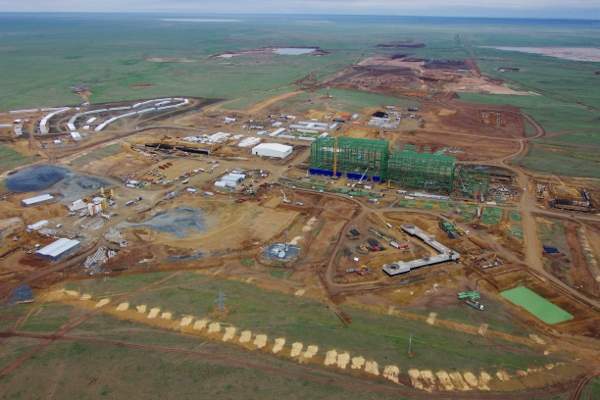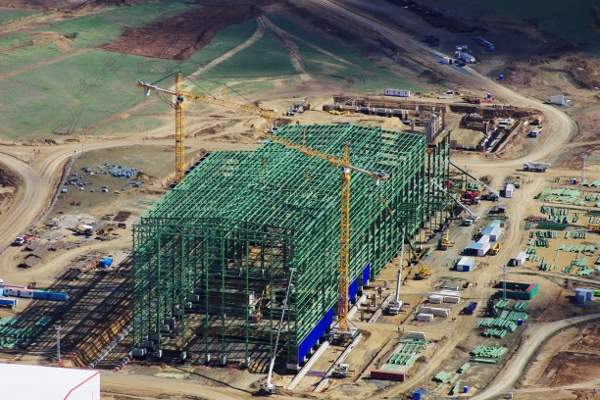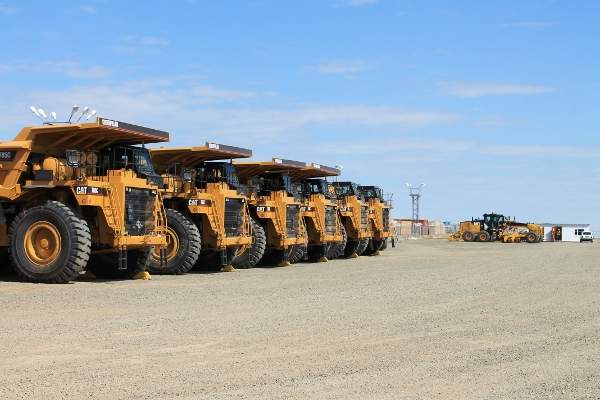Bozshakol copper mine, owned and operated by Kazakhmys, is the largest single copper mine development in Kazakhstan in terms of volume and value, one of the largest undeveloped copper deposits in the world.
Approval for the project was granted in August 2011 and main construction activities began in 2012. The project was commissioned in December 2015, and the first copper concentrate from the project was produced in February 2016.
The Bozshakol project is expected to produce 75,000t of copper concentrate a year over its 40-year production life. The project generated approximately 1,500 construction jobs and more than 1,500 operational jobs.
China Development Bank and Samruk-Kazyna financed the $1.8bn project.
Bozshakol mine location, geology and reserves
The Bozshakol greenfield copper project is located 250km east of Astana in the Pavlodar Oblast in northern Kazakhstan. The open pit mine comprises two pits; the main Central pit and East pit. Central pit is estimated to have a mine life of 33 years, while East pit is expected to operate for approximately 20 years.
The porphyry copper deposit is located within the Middle Cambrian Bozshakol magmatic arc, which consists of tholeiitic basalt and volcanogenic sedimentary rocks. The ore body also contains valuable by-products of gold and molybdenum. Bozshakol deposit comprises small diorite and quartz diorite stocks and pre-mineralisation Late Cambrian dikes of porphyritic tonalite and tonalite porphyry.
The mine is estimated to contain 1.22 billion tonnes (Bt) of copper ore in measured, indicated and inferred categories, at an average grade of 0.36% copper. The copper project is also estimated to contain 5.25 million ounces (Moz) of gold and 57,000t of molybdenum.
Mining and processing of ore at the copper project
Conventional drill and blast mining methods are employed for ore extraction at the Bozshakol mine, followed by truck and shovel operation.
The processing infrastructure includes a concentrator plant with the capacity to process 25Mt of ore a year and a 5Mt a year capacity clay plant. The extracted ore is crushed in a primary gyratory crusher before being fed to the concentrator stockpile. Crushed ore is then transported to the primary and secondary grinding sections via underground feeders.
At the grinding section, the ore is processed into slurry using a 28MW gearless drive semi-autogenous (SAG mill) and two gearless drive ball mills. The slurry is then delivered to the flotation section of the concentrator.
Copper concentrate is gradually separated as the waste tailings undergo flotation, with molybdenum being separated at the end of the flotation process. The obtained copper concentrate is pumped into a filter facility where it is de-watered and stockpiled in powder form. This powder is loaded onto rail wagons and shipped for smelting. The molybdenum product is also de-watered, dried and packaged before being shipped to the customer.
Between 2015 and 2030, the Bozshakol processing plant is expected to process 30Mt of ore a year, to turn out 100,000t of copper concentrate. From 2015 to 2056, this amount is expected to drop to 25Mt of ore being processed each year to produce 60,000t of copper concentrate.
Infrastructure facilities and construction
Major construction works carried out at the Bozshakol copper project included the concentrator building, a 200kV power line and a permanent accommodation camp. Approximately 15,000t of structural steel, 10,000t of re-bar and 90,000m³ of concrete were used for constructing the concentrator plant.
A new rail spur was also built from the existing Bozshakol railway station to the mine site in order to transport supplies. The rail line is complemented by a new road connecting the site to the existing Astana-Pavlodar road.
Power required by the mine is sourced from the Ekibastuz GRES-1 power plant located to the east of the project site. Water is supplied from the Satpayev Canal located approximately 25km east of the copper mine.
Contractors involved with Bozshakol
Alsim Alarko was awarded the engineering, procurement and construction (EPC) contract for the Bozshakol copper project in September 2011. Aker Solutions was received a $15m contract for preparing the feasibility study and conducting basic engineering works.
FLSmidth was awarded a $63m contract for designing the copper concentrator and supplying the process technology. FLSmidth also procured auxiliary third party items, as well as providedg erection supervision, start-up and commissioning services for the concentrator plant.
Xstrata Technology provided fine-grinding technology for the Bozshakol copper concentrator. WEG supplied major equipment for the project’s clay plant.








